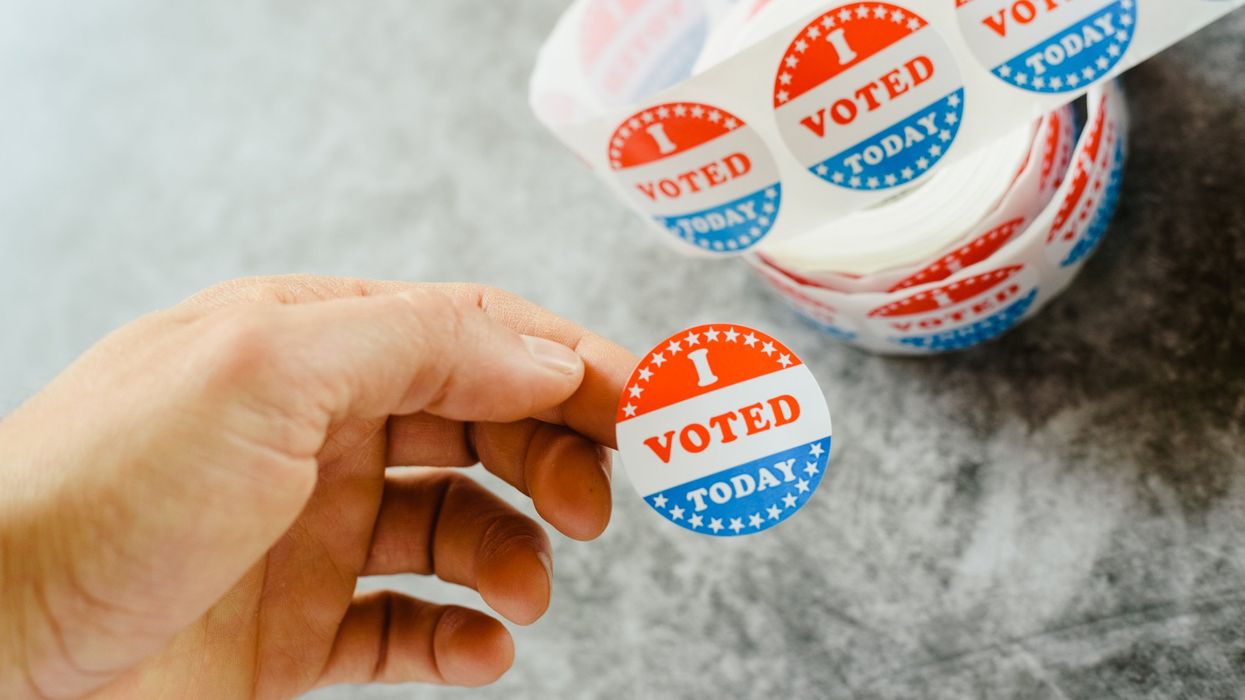The Alliance for Youth Action, a national network of state-based youth organizations, is working to expand civic engagement among young people through local and state-level engagement efforts.
State-based, youth civic engagement organizations New Era Colorado, Forward Montana, the Washington Bus, and Next Up Action Fund (formerly known as The Bus Project) founded the Alliance for Youth Action in the early 2010s to get more young residents to vote. The Alliance for Youth Action Chief of Staff Nicole Hensel said the founders shared a common vision of wanting to “reinvent” politics for young people, get them involved in the political process, and break down “barriers” to young people accessing political power.
The founding organizations have since been joined by 13 other state organizations. Hensel said these organizations still operate at the state level but work together on national initiatives.
“They decided the more together, the better,” Hensel said.
Hensel also said that “local power” is built at state-based organizations, and they are going to lead society “out of the mess we are currently in” and will rebuild “faith” in democracy.
According to polling from the Marist Institute for Public Opinion at Marist University in April, 77 percent of Americans, when thinking about the issues dividing the nation, said there is a “serious threat” to the future of democracy. This is an increase of four percent from January.
Hensel said the Alliance for Youth Action defines civic engagement “broadly,” as it involves people making their voice “heard” in the democratic process. Hensel added that civic engagement “obviously” takes form in voting but in other ways as well.
“Even just connecting with people in your community about issues that you care about and taking action at a hyperlocal level, all of that is civic engagement,” Hensel said.
The Alliance for Youth Action also has a #VoteReady initiative on their national website, where people can check their voter registration status, request an absentee or mail-in ballot, and find out where to vote. But Hensel said the Alliance for Youth Action’s main work is ensuring that they are meeting the needs of the state organizations in their network.
Hensel said each of the state affiliates has an executive director who is involved in the “governance power” that the Alliance for Youth Action has over their organizations.
“We are ultimately accountable to them,” Hensel said in reference to the state affiliates.
Hensel added that the national staff at the Alliance for Youth Action also tries to get out to the states “as much as possible” to “root” themselves in understanding the work they are assisting in putting on the ground.
One of the executive directors of these state organizations is Christina Soliz of New Era Colorado, one of the founding members of the Alliance for Youth Action in 2006. Soliz said that over the past 19 years, New Era Colorado realized registering voters “wasn’t enough,” so it started working towards advocacy in increasing access to the ballot box.
“We worked in coalition to pass mail-in voting, same-day voter registration, online and pre-registration, and expanded access to polling centers on college campuses,” Soliz said.
In 2024, New Era Colorado reached over 1 million young voters through calling, texting, knocking on doors, and more.
New Era Colorado also pre-registers high schoolers to vote through their Colorado Democracy Challenge. The organization also has its action fund, where they push for their “youth agenda,” including advocating for climate justice and democracy reform, along with making post-secondary education more affordable.
“We talk to our community about the issues that are most important to them and how they can advocate for those issues alongside us,” Soliz said, referencing how they advocate for their Youth Agenda.
Another state affiliate of the Alliance for Youth Action is MOVE Texas, founded in 2013 by University of Texas at San Antonio students in an effort to elect a city council member more aligned with students’ values. Since then, MOVE Texas has also expanded to Austin, Dallas, Houston, and more.
MOVE Texas Communications Manager Tori Falcon said the “bread and butter” of their mission is registering young people to vote, but they also do leadership development for young people.
Like New Era Colorado, MOVE Texas also has a youth agenda. Falcon said the organization is nonpartisan but added that their work aligns with progressive policies such as democracy reform and climate justice.
“We recognize young people are not exactly fired up about politicians or political parties,” Falcon said. “Progressive laws are not necessarily tied to a party, even though certain parties may champion them.”
Looking forward over the next five to ten years, Hensel, back at the Alliance for Youth Action, said their goal is to expand to more states, adding that they want every state to have a strong engagement infrastructure for its young people. She added that the Alliance for Youth Action wants to fund the “biggest and best” youth work across the country.
“We want our network to have some of the highest impact programs and lead to really tangible wins, not just in elections but also state legislatures and city councils,” Hensel said. “When young people see progress on the issues that matter to them, that then reignites their faith in democracy as a system that can work for them.”
Maggie Rhoads is a student journalist attending George Washington University School of Media and Public Affairs. At The Fulcrum, she covers how legislation and policy are impacting communities.
Maggie was a cohort member in Common Ground USA's Journalism program, where Hugo Balta served as an instructor. Balta is the executive editor of the Fulcrum, and the publisher of the Latino News Network.
The Fulcrum is committed to nurturing the next generation of journalists. Learn more by clicking HERE.




















Trump & Hegseth gave Mark Kelly a huge 2028 gift